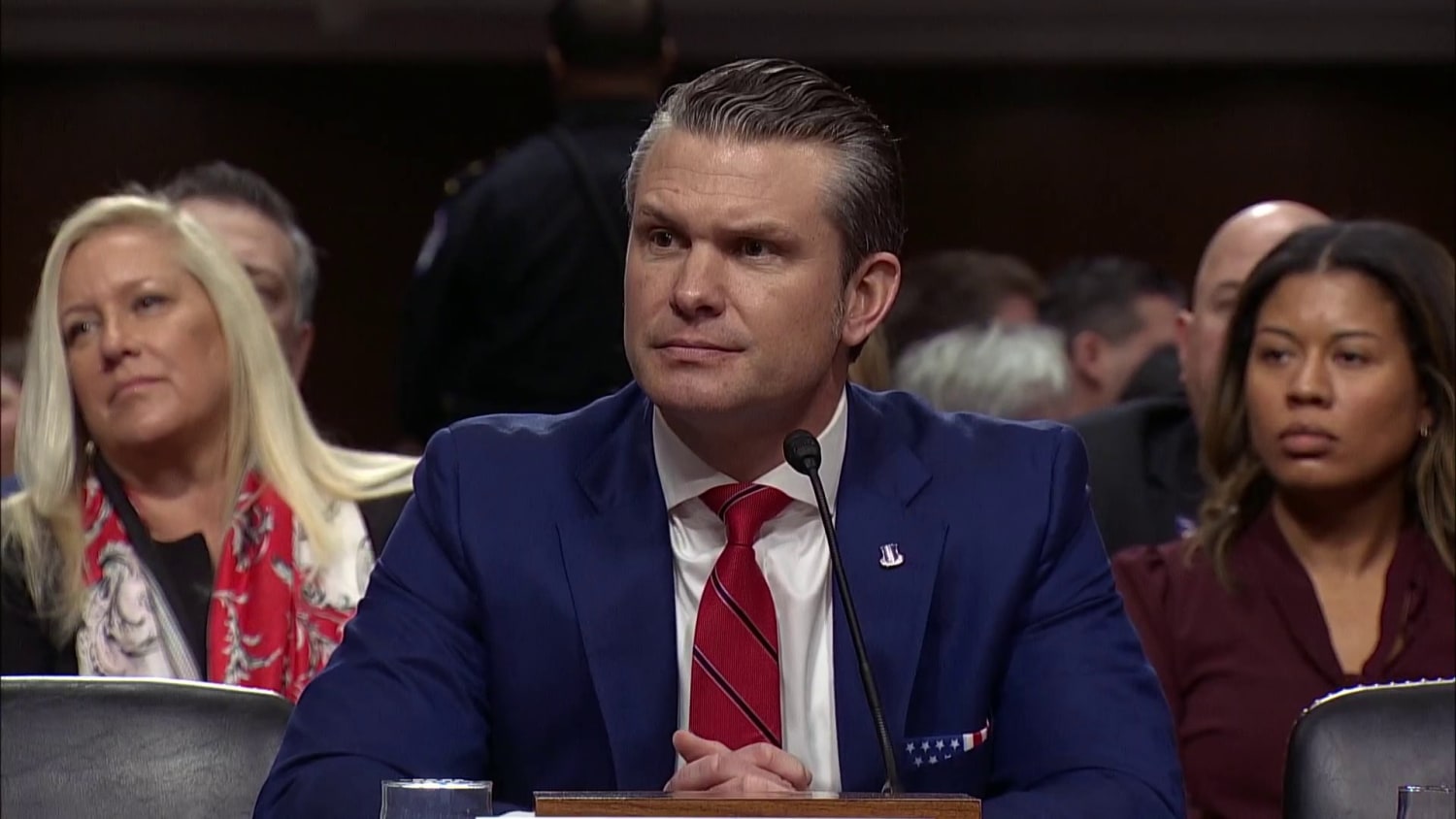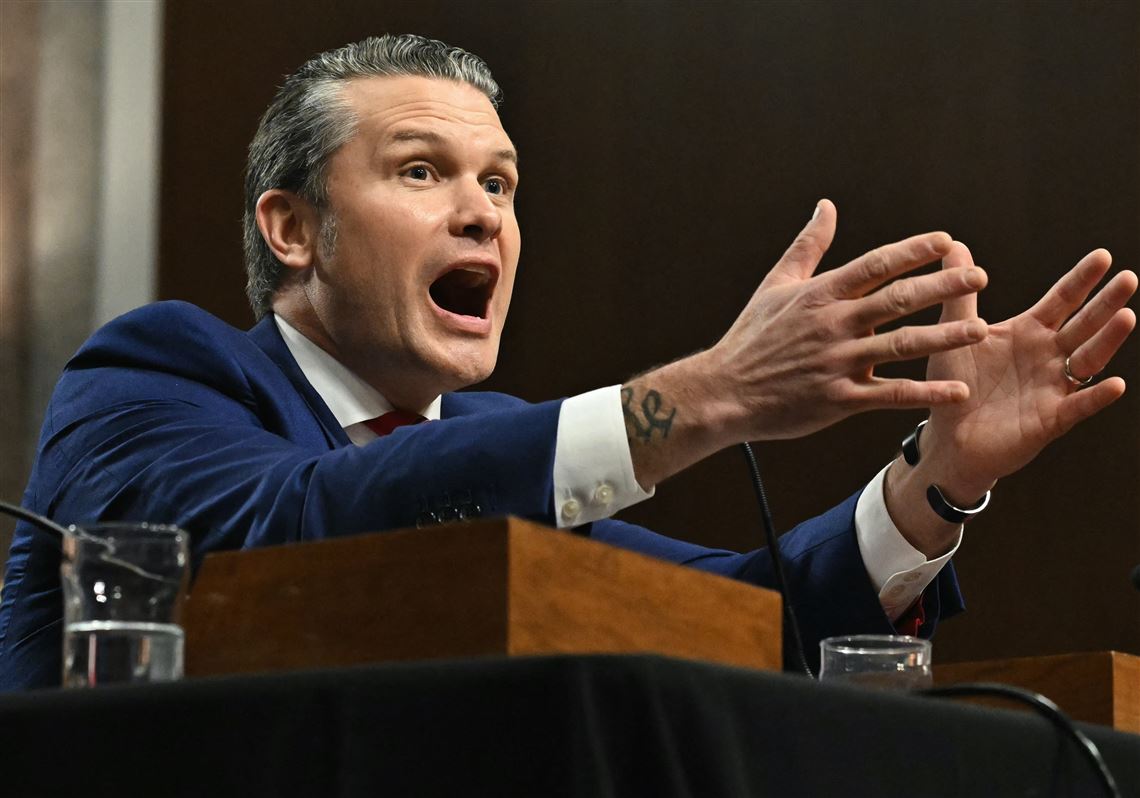
In a charged congressional hearing, Defense Secretary Pete Hegseth found himself under intense scrutiny as lawmakers demanded details about President Donald Trump’s $1 trillion defense budget. The session, held Tuesday before the House Appropriations defense subcommittee, was the first time the defense chief faced lawmakers’ probing questions since his confirmation.
The hearing was marked by sharp exchanges, raising concerns about spending priorities and the future direction of U.S. military policy.
The debate reached a boiling point when Hegseth was questioned about the deployment of National Guard troops and Marines to Los Angeles. In response to protests following immigration raids, the deployment was estimated to cost $134 million.
This sparked a tense exchange between Hegseth and lawmakers, including Rep. Betty McCollum (D-Minn.), who grilled Hegseth about the necessity of such expenses amid the ongoing budget discussions. Hegseth, however, remained steadfast, defending the move by emphasizing the need to protect federal agents and ensure order during the unrest.
“We want to make it clear that those rioters, looters, and thugs assaulting our police officers know that we’re not going anywhere,” Hegseth remarked. His argument centered on the expanded role of the National Guard and Reserves in securing the homeland, a position that reflects President Trump’s broader security priorities.
The defense budget, which is set to total $1 trillion—a significant jump from the current $800 billion—has been a focal point of controversy. Critics argue that the Trump administration has not sufficiently provided Congress with the full details of the proposed spending, raising concerns about accountability and transparency.
While Republicans have largely supported Trump’s vision, including the proposed $175 billion Golden Dome missile defense system, many within the Democratic Party have raised alarms over what they view as an overreliance on military expenditures, with little focus on diplomacy or domestic needs.
Rep. Rosa DeLauro (D-Conn.) voiced her frustrations, telling Hegseth that his tenure as Secretary of Defense had been “marked by endless chaos.” Lawmakers from both sides of the aisle shared a sense of urgency to get clarity on the budget, which they argued is vital to understanding how America plans to address its growing security concerns, especially in the face of rising threats from foreign adversaries such as China and Russia.
During the testimony, Hegseth made clear that the use of military troops within U.S. borders is likely to increase in the coming years. The recent troop deployment to Los Angeles is just one example of how the administration plans to use National Guard and Reserve forces in a more expansive role. "We're entering another phase, especially under President Trump, with his focus on the homeland," Hegseth stated.
This new phase would see military personnel becoming a more integral component in domestic security, as Hegseth signaled that this might not be the last deployment of its kind.
While the Posse Comitatus Act restricts military forces from directly engaging in law enforcement activities within the U.S., the Trump administration has indicated its willingness to invoke the Insurrection Act if necessary. The question of whether the situation in Los Angeles could be classified as an “insurrection” was raised during the hearing, although Trump’s comments left many unclear on how such a designation would be determined.
As the discussion turned to other aspects of the proposed budget, Hegseth’s comments on military spending generated even more questions. Rep. McCollum pressed Hegseth on the military’s cost-effective use of resources, particularly in light of the recent military parade plans that would cost $45 million. Other spending priorities, such as transforming a Qatari jet into Air Force One, also raised eyebrows.
Despite the controversies surrounding the budget’s proposals, Hegseth remained resolute, defending the importance of military preparedness in a world where adversaries like China and Russia continue to challenge U.S. interests. "We must remain vigilant," he said. "Our military must evolve to meet new and emerging threats, especially in the realm of cybersecurity and space."
The hearing also touched on broader international concerns, including the administration's response to Ukraine's surprise drone attack on Russian military targets. The attack, which destroyed several Russian bombers, caught the U.S. by surprise, leading the Pentagon to reassess its defenses. "We’re learning from Ukraine's advances in drone warfare, and we must adapt our own capabilities to counter similar threats," Hegseth noted.
Despite acknowledging the effectiveness of Ukraine’s defense efforts, Hegseth hinted that funding for Ukraine would be reduced in the upcoming defense budget. The U.S. has already provided Ukraine with more than $66 billion in military assistance since Russia's invasion in February 2022, but as the Trump administration moves toward a more “America First” approach, some foreign aid programs are expected to see cuts.
“A negotiated peaceful settlement in Ukraine is in the best interest of both parties,” Hegseth remarked, signaling a shift in policy that could potentially lessen U.S. involvement in the ongoing conflict.
In addition to military spending, Hegseth has faced scrutiny for his efforts to reform the Pentagon’s internal culture. He has prioritized purging diversity programs and pushing for more traditional military values. While these changes have earned praise from certain quarters, they have also sparked criticism from those who view them as regressive or overly partisan.
Hegseth’s broader international engagements have also been under scrutiny. While he addressed a national security conference in Asia about the growing threat of China, he skipped key international gatherings, such as a NATO meeting where crucial discussions about support for Ukraine were held.
This raised questions about his commitment to international diplomacy and military alliances, especially at a time when the U.S. is under increasing pressure to maintain its global leadership role.
As the debate continues over the defense budget and the direction of U.S. military policy, one thing is clear: Pete Hegseth will continue to be a central figure in shaping the future of America’s defense strategy. While some criticize his focus on expanding military presence at home, others argue that this is a necessary response to a world increasingly defined by instability and conflict.
With $1 trillion on the table, Hegseth’s defense of Trump’s military budget is a reflection of his broader vision for a robust and prepared U.S. military.
The coming months will likely see more heated debates as Congress grapples with the implications of Hegseth’s proposals and the evolving security landscape. For now, Hegseth remains steadfast in his belief that a strong, proactive defense posture is essential to safeguarding America’s future.
The $1 trillion question, however, remains: is such an investment truly necessary to secure the homeland, or will it lead to an unsustainable military-industrial complex? Only time will tell.








